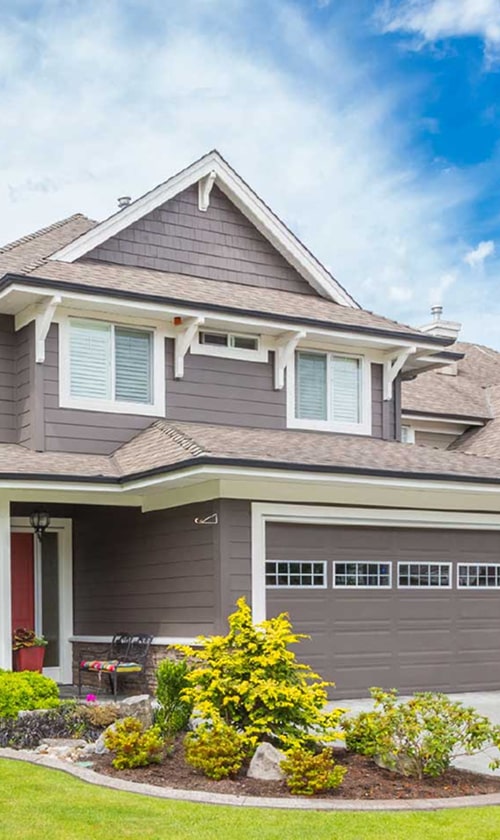Understanding Boiler Size and Its Importance
Choosing the right boiler size is crucial for heating efficiency and energy savings. A boiler that’s too big or too small can waste energy or fail to meet our home’s heating needs.
The Basics of Boiler Sizing
Boiler size is typically measured in British Thermal Units (BTU). This tells us how much heat the boiler can produce in an hour. The key is to match the boiler’s BTU to our home’s heating needs.
To do this, we must consider the size of our home, the number of radiators, and our insulation type. Larger homes with many rooms usually need bigger boilers. Good insulation can decrease the size needed.
A boiler size calculator can help determine the optimal size. By entering details like home size and insulation levels, we can get an accurate measurement. This ensures efficiency and comfort.
Calculating Heat Loss for Optimal Size
Understanding heat loss is vital in choosing the right boiler size. Heat loss occurs when warmth escapes from our home, affecting how hard our boiler must work.
Heat loss calculations involve assessing every part of the house. We need to check windows, doors, walls, and ceilings. Older homes might have more heat loss due to less efficient insulation.
These calculations help determine the heating capacity needed. With accurate data, we avoid oversizing or undersizing, leading to better energy use.
Inaccurate heat loss estimates mean higher bills and less comfort. Ensuring we correctly calculate this helps us select a boiler that meets our exact needs.
Types of Boilers and How They Affect Sizing

Choosing the best boiler size depends on understanding different boiler types and their capacities. The main types—combi, system, and conventional boilers—each have their strengths. Fuel type also plays a role in picking the right size, whether it’s natural gas or alternatives like electric or renewable options.
Comparing Combi, System, and Conventional Boilers
Combi boilers are compact and great for smaller homes. They provide heat and hot water directly without the need for a storage tank. This means less space is required, but they may struggle to meet high simultaneous demand.
System boilers need a cylinder for storing hot water but not a tank. They suit homes with more than one bathroom because they can maintain constant water pressure. They also fit better in larger homes and can use renewable energy sources.
Conventional boilers use both a cylinder and a storage tank. They are best for homes with a lot of space and high hot water needs. They can handle low-pressure water systems but require more installation space. These are ideal if upgrades or expansions are planned.
Fuel Types and Boiler Capacity
Natural gas boilers are common because they are efficient and cost-effective. Many homes already have the necessary connections.
Electric boilers are useful where gas access is limited. They are smaller and easier to install, but can be more expensive to run.
Alternative energy sources like propane, LPG, and even renewable options affect the needed capacity. Choosing the right fuel type helps ensure that our boiler is both efficient and capable of meeting our home’s demands. The necessary capacity can vary widely based on fuel choice and availability.
Evaluating Your Home’s Heating and Hot Water Requirements

When choosing the right boiler size, it’s crucial to consider both heating and hot water demands. We must look at factors like the number of radiators, hot water usage, and the size of the property. By understanding these elements, we can ensure the boiler meets our home’s requirements effectively.
Determining Your Home’s Heating Needs
To figure out the heating needs of our home, we should first check the property size and layout. Larger homes with more rooms generally need a bigger boiler. The number of radiators also plays a key role, as each one adds to the total heat load required.
Insulation is another important factor. Well-insulated homes retain heat better, potentially reducing the boiler size needed. Poor insulation means more energy is required to heat the space. Heat load calculations can help us determine the exact amount of energy needed.
We should gather all this information to choose the right-sized boiler that will efficiently keep our home warm, while minimizing energy waste.
Assessing Hot Water Demand and Usage
Our hot water demand depends on various factors, including the number of bathrooms and the number of people living in the house. More bathrooms and higher hot water usage increase the demand on the hot water supply.
We need to think about hot water needs, such as showers, baths, and any appliances that use hot water. By looking at usage patterns, we can understand peak times when demand is highest.
Choosing a boiler with the right capacity ensures a steady hot water supply so everyone has what they need without running out. Let’s make sure the boiler size matches our everyday demands for heating and hot water.
Efficiency and Environmental Considerations
When choosing a boiler, efficiency and environmental impact are crucial factors. A boiler that uses energy well can reduce energy bills and help the environment. By decreasing waste, we can make our homes more eco-friendly.
Energy Efficiency and Consumption
Boiler energy efficiency is measured in percentages. The higher the percentage, the more effectively it uses energy. Modern boilers often reach up to 90% or higher. This means less energy is wasted and more is converted into heat.
We need to consider the boiler size and type. An oversized boiler may consume more energy than necessary, leading to higher bills. On the other hand, a boiler that’s too small may struggle to heat the home efficiently.
Calculating the proper kilowatt (kW) requirement for our home can help find the right balance. An energy-efficient boiler can lead to significant savings. Reducing energy consumption lowers bills and helps minimize our carbon footprint.
Reducing Energy Waste and Environmental Impact
Reducing energy waste is as important as having an efficient boiler. Insulating pipes and using smart thermostats can bolster a boiler’s efficiency. These additions ensure heat is not lost unnecessarily and maintain consistent indoor temperatures.
Environmentally friendly boilers release fewer emissions, which is better for the planet. Opting for condensing boilers, which recycle exhaust gases, lowers harmful emissions. This process captures heat that would otherwise escape.
By investing in technologies that minimize energy waste, we can reduce our environmental impact. It’s not only about personal savings but also about our responsibility for the environment. Making informed choices can lead to a sustainable and cost-effective heating solution.
Installation and Maintenance Factors
When it comes to installing and maintaining a boiler, it’s crucial to select the right professional and plan for ongoing maintenance. These steps ensure reliable operation and prevent issues like short cycling or inconsistent water flow.
Selecting the Right Installation Professional
Choosing an experienced heating contractor is key to a successful boiler installation. We need a professional who understands water pressure and flow rate to prevent issues like an oversized or undersized boiler. Errors in sizing can lead to inefficient heating and affect the lifespan of the system.
To search for a reputable contractor, consider checking online reviews or requesting recommendations from friends. Always ensure the contractor is licensed and insured. It’s helpful to ask about their previous experience and whether they have references from past customers.
Meeting and discussing our needs can also give us insights into their approach. We need someone who is clear about what needs to be done and can explain the process.
Ongoing Maintenance and Costs
Regular maintenance keeps our boiler running efficiently. Keeping a schedule ensures the system runs smoothly and prevents unexpected breakdowns. During maintenance, professionals often check for leakages, examine the hot water tank, and assess the system to avoid short cycling.
We must budget for these maintenance tasks. Annual check-ups usually cost a specific amount, which varies based on our location and boiler type. While these are added expenses, they help avoid higher costs from major repairs or replacements. Maintaining a consistent service log can also be useful in keeping track of any issues or repairs done over time. It allows us to see patterns and decide on future upgrades if needed.




